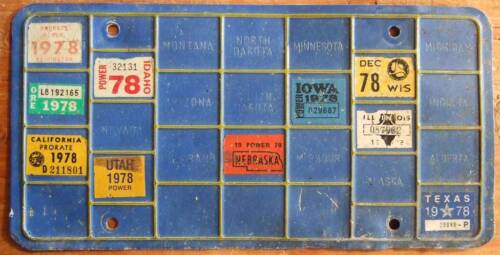Everything You Need to Know About IFTA
IFTA? What does that stand for? No, it does not stand for International Free Tacos Association. Don’t worry, you weren’t the only one thinking it. I would love to join that association, but sadly it doesn’t exist. Even though IFTA won’t make your life more tasty and delicious, it is something that will make your life simpler and less confusing. By the end of this article, you will be able to wrap your head around IFTA just as well as you can wrap your mouth around a taco.
What is IFTA?
The International Fuel Tax Agreement (IFTA) was made to simplify fuel usage and tax payments for motor carriers. IFTA is only used in 48 states of the US, not including Alaska and Hawaii. It is also used in many provinces of Canada. Trucking companies often travel across the country in many different states. Because of the many borders they cross, IFTA was created to make taxing each vehicle’s fuel simpler and easier to understand. This agreement also saved so much money in business admin costs.
Before IFTA was created, all states had different ways of collecting fuel taxes which made it very difficult for truck drivers. All the drivers needed to go to centers for fuel tax permits every time they entered a new state.
All drivers had to have “bingo plates.” The plates looked like they would help you win a prize if you collected all the state permit stickers. Unfortunately, it was the opposite of having fun. There was no yelling “bingo!” when you collected them all. It was more like yelling “heck no!” because it was so difficult to manage and was so confusing.

Not only was that process confusing, but it was also inefficient and added additional costs in the form of lost time, fuel burned by needing to go out of their way to go to a state permit purchasing center, and applicable fees. It would also require long hours of clerical work and inconsistent fuel fill-up times.
Since that was so expensive and time-consuming, IFTA was put in place and now they have a system called, the “pay now or pay later” system.
How does IFTA work?
Now that IFTA is put in place and drivers don’t carry around a bingo plate. The agreement makes sure every jurisdiction is properly compensated. All drivers do not need to pay taxes on fuel in each state. They only need to pay the fuel taxes to their base state where the vehicle is registered. The state will collect the taxes on net fuel use, process fuel tax returns and then the state distributes the money to each relevant jurisdiction.
The fleet managers then need to file and pay fuel taxes on time. If you don’t file your IFTA tax return or pay due taxes, you may be charged interest and penalty, and your IFTA license may be canceled.
Who needs to file IFTA?
Not everyone needs an IFTA license. IFTA defines a qualified motor vehicle as a vehicle built and used to transport property or people. If you fall under any of these categories, you also need one if:
You travel between one or more jurisdictions.
Your vehicle is motorized and is used for commercial purposes.
The vehicle has two axles or more.
It weighs more than 11,797 kg (26,000 lbs) either by itself or with a trailer connected.
How to calculate and file IFTA:
Track the miles you’ve traveled in each state: make sure to record their odometer readings whenever you cross state lines.
Add fuel purchases: make sure you keep all receipts from whenever you get fuel.
Calculate fuel consumed per state: (For each state or province, add up the total number of miles you drove in that state. Divide that number by your average fuel mileage, determined above. The result is your total fuel consumption in that location.)
Work out taxes owed for each state and province: (You can use the IFTA chart to look up the fuel tax rate by jurisdiction and fuel type.)
File report: online, by mail, or in person.
When does IFTA need to be filed?
IFTA reports are due quarterly. You must file your report by the last day of the month following the end of the quarter. The specific deadlines are:
January through March (First Quarter): Due by April 30
April through June (Second Quarter): Due July 31
July through September (Third Quarter): Due October 31
October through December (Fourth Quarter): Due January 31
Bottom Line:
Thanks to IFTA, life for truck drivers can be easier. If this sounds like a lot of work, you’re not wrong. Yes, you need to calculate all of these numbers, but you can use automated IFTA reporting software to do it all for you. Instead of going through all those receipts every quarter, you can start when you create a load. You can track miles electronically and enter fuel receipts as you’re on the road. Then the system generates the quarterly reports easily. All you needed to do was click around. If you want to know more about what taxes you need to pay as an owner operator here is an article for you.
Before working at Superior Trucking Payroll Service she worked in IT at GVSU which gave her the skills to problem-solve with customers over the phone.

